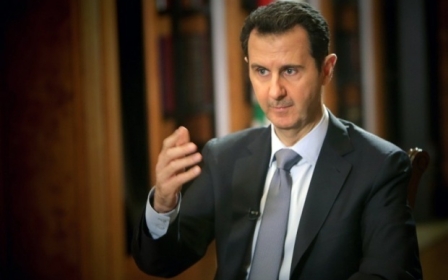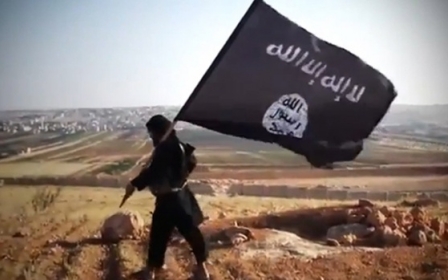Calendar agreed for Syria polls, Assad's fate undecided

By Simon Sturdee and Fran Blandy
VIENNA - World diplomats agreed on Saturday on a path to Syrian elections in 18 months at talks in Vienna driven by a fresh sense of urgency after the Paris attacks, although the fate of President Bashar al-Assad remained a sticking point.
The wave of attacks that left nearly 130 dead in Paris dominated the second round of talks to end the war in Syria, spurring delegations from 20 countries and organisations to find common ground despite deep divisions.
German Foreign Minister Frank-Walter Steinmeier said delegates had agreed a transition government in Syria should be set up in six months and elections held in 18 months.
"No one is lying to themselves about the difficulties we are facing, but the determination to find a solution has progressed in 14 days," since the first round of talks in Vienna, Steinmeier said.
A final statement after the meeting said that the goal was to bring Syrian government and opposition representatives together by January 1.
"This political process has to be accompanied by a ceasefire. That will help to end the bloodshed as quickly as possible and I might add that will help rapidly to define who wants to be considered a terrorist and who is not," said US Secretary of State John Kerry.
"Make no mistake that resolve has only grown stronger in the wake of this unspeakable brutality," Kerry said of the attacks in Paris which were claimed by the Islamic State group operating out of Iraq and Syria.
"It is respect for life and for its possibilities that drove our efforts today in Vienna."
Syria war 'bleeds into all nations'
In almost five years, the war in Syria has left 250,000 dead, sparked a refugee crisis in Europe and birthed the Islamic State group whose actions have hit several nations at the negotiating table in Vienna.
"The impact of this war bleeds into all nations, from the flood of desperate migrants seeking refuge... to the foreign fighters who make their way into Syria ... to self-radicalised fighters living among us, their minds poisoned by Daesh's propaganda and lies," said Kerry.
Witnesses said that the gunmen in the Paris attacks had blamed France's military intervention in Syria against Islamic State (IS) fighters.
Vowing France would not stop its "international action", Foreign Minister Laurent Fabius said in Vienna that the killings underlined the need to "increase the international coordination in the struggle against Daesh," referring to another name for IS.
Russian Foreign Minister Sergei Lavrov agreed, saying the attacks were "no justification" to ease up on tackling radical jihadists such as IS and the al-Nusra Front, which is affiliated with al-Qaeda.
EU foreign policy chief Federica Mogherini said the countries sitting around the table have "almost all experienced the same pain, the same terror", citing the recent Russian plane disaster in Egypt and suicide bombings in Beirut and Turkey.
These countries agreed that the UN would lead consultations to determine the modalities of the ceasefire, which will not involve operations against the Islamic State, al-Nusra Front and other groups yet to be determined.
The countries gathered in Vienna agreed that the elections will be held according to a new constitution and will be administered by the United Nations.
The final communique agreed that the diaspora should be allowed to vote in the elections, a key sticking point in negotiations.
Assad's role
The crux issue of the role of Syrian President Bashar al-Assad remained unsolved.
Western and Arab countries want him out of the way to let a transitional government unite the country behind a reconciliation process and defeat IS.
But Russia, carrying out air strikes against Syrian rebels since late September, is sticking by Assad along with Shiite Iran, which does not want a Sunni-controlled Syria.
"Obviously those of us who met in Vienna today ... did not agree on all issues when it comes to Syria. We still differ obviously on the issue of what happens to Bashar al-Assad," said Kerry.
"This war cannot end as long as Bashar al-Assad is there," he said.
Kerry said comments by Assad blaming France's actions in Syria for the attacks in Paris, showed he "is not fit to be the leader of his country".
The next meeting on Syria is expected in about a month.
New MEE newsletter: Jerusalem Dispatch
Sign up to get the latest insights and analysis on Israel-Palestine, alongside Turkey Unpacked and other MEE newsletters
Middle East Eye delivers independent and unrivalled coverage and analysis of the Middle East, North Africa and beyond. To learn more about republishing this content and the associated fees, please fill out this form. More about MEE can be found here.




